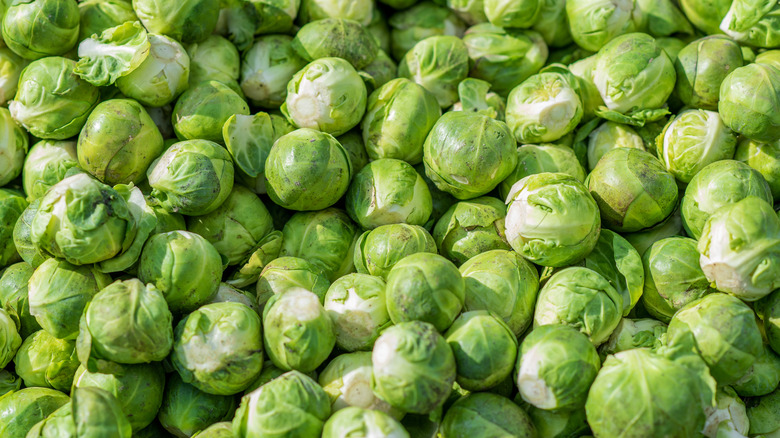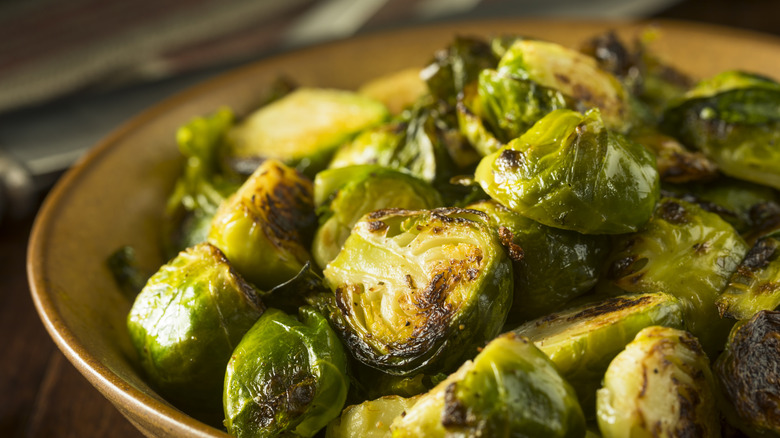The Difference Between Small And Large Brussels Sprouts
Brussels sprouts have earned a bad reputation over the years. They have become culturally ubiquitous as the least desirable vegetable and the bane of picky children, but according to EatingWell, you may just be preparing them wrong. Given the proper care, a Brussels sprout just might become your new favorite vegetable and a weeknight dinner staple.
According to the Harvard School of Public Health, Brussels sprouts are a brassica vegetable that is closely related to plants like broccoli, kale, and cabbage. In fact, they are often referenced as a sort of mini-cabbage. They were first widely cultivated in their namesake home of Brussels, Belgium sometime around the 16th century. When cooked improperly, the tiny brassica will release bitter flavors thanks to sulfur-containing compounds present in the sprout. Especially when boiled or overcooked these flavors can ruin the classic side dish — not to mention stink up your kitchen.
There are plenty of different ways to prepare the humble Brussels sprout, but a small choice made in the produce aisle might be the difference between unwanted leftovers and a clean plate.
Small Vs. large sprouts
The size of your Brussels sprouts will affect your preparation in a few ways. A good rule of thumb is to go for the smaller options. It may seem like more work to prep the smaller sprouts, but picking out the smallest you can find could have a huge effect on flavor. According to EatingWell, larger Brussels sprouts tend to have a more cruciferous flavor that will be similar to the bitter taste of uncooked cabbage. They define a larger Brussels sprout as one that's more than an inch in diameter.
On the other hand, smaller sprouts will have a sweeter flavor profile (via White On Rice Couple). This can be a great contrast to something more savory like bacon or be enhanced by sweet toppings like maple syrup or a good balsamic vinegar. White On Rice Couple explains that smaller Brussels sprouts will also require less prep, though they may take longer to cook because of their density. Larger Brussels sprouts will also often need to be sliced in half to cook evenly. EatingWell explains that this is because the leaves bunch together closer to the center on larger sprouts. It can help to slice up the little guys due to their density, but it isn't absolutely required.

